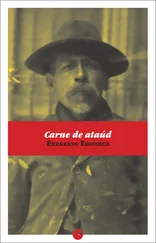Bernardo Atxaga - Obabakoak
Здесь есть возможность читать онлайн «Bernardo Atxaga - Obabakoak» весь текст электронной книги совершенно бесплатно (целиком полную версию без сокращений). В некоторых случаях можно слушать аудио, скачать через торрент в формате fb2 и присутствует краткое содержание. Год выпуска: 2010, Издательство: Graywolf Press, Жанр: Современная проза, на английском языке. Описание произведения, (предисловие) а так же отзывы посетителей доступны на портале библиотеки ЛибКат.
- Название:Obabakoak
- Автор:
- Издательство:Graywolf Press
- Жанр:
- Год:2010
- ISBN:нет данных
- Рейтинг книги:3 / 5. Голосов: 1
-
Избранное:Добавить в избранное
- Отзывы:
-
Ваша оценка:
- 60
- 1
- 2
- 3
- 4
- 5
Obabakoak: краткое содержание, описание и аннотация
Предлагаем к чтению аннотацию, описание, краткое содержание или предисловие (зависит от того, что написал сам автор книги «Obabakoak»). Если вы не нашли необходимую информацию о книге — напишите в комментариях, мы постараемся отыскать её.
Obabakoak
The Observer
Obabakoak — читать онлайн бесплатно полную книгу (весь текст) целиком
Ниже представлен текст книги, разбитый по страницам. Система сохранения места последней прочитанной страницы, позволяет с удобством читать онлайн бесплатно книгу «Obabakoak», без необходимости каждый раз заново искать на чём Вы остановились. Поставьте закладку, и сможете в любой момент перейти на страницу, на которой закончили чтение.
Интервал:
Закладка:
“I’m not ill. It’s just that I haven’t been to the beach,” she said when she looked at herself in the bathroom mirror and noticed how pale she was. But the fear of illness kept nagging at her while she washed.
Later, sitting at the kitchen table and looking at the butterflies she kept displayed in the glass-fronted dresser, she wrote in her notebook: “I’m a Melanargia russiae, pinned to a piece of cork, slowly bleeding to death.”
But the moment she reread those words, indeed for the first time since she’d arrived in Albania, Her Confused Heart rebelled. The comparison was too extravagant. In its reference to blood, it could even be taken as a clumsy description of her own physical state, for her period had finally started, fifteen days late.
She pursed her lips, crossed out what she had written, and added a new thought to her diary:
I must do something: Move about, go for a walk, find new friends, anything. If I don’t, this cold Albania will be the death of me.
She didn’t quite know what steps she should take to achieve these aims; but what mattered, after all, was her new resolve.
Shortly afterward, just when the clock was striking half past eight, a knock at the door startled her properly awake. She gave a satisfied smile: She knew it would be her favorite pupil, the young servant boy from the Mugats house. He had come, as he did every day at that hour, to pick up the schoolroom key.
“Time hasn’t quite stopped. And here’s the proof,” she thought as she hurried down the passage.
“It’s very cold today, Manuel. Would you like a hot drink?” she said, on greeting him.
In response to the unexpected invitation, the servant boy hesitated, half-perplexed and half-distrustful, then advanced slowly along the passage, not saying anything, eyes firmly fixed on the floor.
“Go into the kitchen, Manuel. Don’t be shy. Would you like a bowl of milk and some biscuits?”
The schoolmistress was deeply grateful for this visit because it shook her out of the gloomy introspection into which she had sunk the moment she’d gotten out of bed. Her cheerfulness was beginning to return.
“I wouldn’t mind a cup of coffee,” he said solemnly. Then he immediately took a cigarette from his pocket and offered it to the schoolmistress:
“Would you like one?” he asked.
“I don’t smoke, Manuel. And you’d do well to follow my example. You’re much too young to be smoking.”
“But you’re a woman and you can’t compare men and women. Women are much weaker physically than men. Everyone knows that.”
The servant boy’s manners and behavior were not what one would expect in a child of twelve. There was something ancient about him, and, when he spoke, he did so gravely in the forthright tones of one who has always lived in the open air, in the woods, among the rocks on the mountains, beneath the stars. Compared with the other pupils at school, he seemed more adult, from another era, yes, that was it, from another era entirely.
“He hasn’t really had a childhood,” thought the schoolmistress as she handed him the cup of coffee. “He started work so young and he’s never really had anyone of his own age to play with.” Her heart — free now from her dark dawn thoughts — aroused feelings of tenderness in her.
“The stove’s working well, don’t you think?” she asked, for the servant boy was the only pupil with the sole right and responsibility to keep the school at a pleasant temperature.
“Seems to be. At any rate we haven’t been cold in school up till now.”
And when he said that, he smiled for the first time since he’d entered the house.
“He has a very nice smile,” thought the schoolmistress, at the same time congratulating herself on her excellent judgment in putting him in charge of maintenance of the stove. The job gave him a position in the school, gave him an authority that, behind as he was in his studies, he would never have achieved on his own.
“When did you start going to school, Manuel?” she asked.
The servant boy might well have been surprised by the schoolmistress’s friendliness and her sudden curiosity about the details of his life, but if he was, he didn’t show it. He expressed himself with growing confidence.
“I started when I was nine. Before that, from when I was six, I worked as a shepherd up in the mountains. It wasn’t a bad job. Better than the job I’ve got now at any rate,” he replied, then gulped down what coffee remained in his cup.
“Is your present boss a bad man then?”
“He’s a pig.”
His boss only let him go to school in the mornings, not in the afternoons, and the schoolmistress assumed it was that prohibition that had merited him the name of pig. But the boy saw things quite differently.
“He drinks, you see,” he began, by way of explanation. “And, as you know, when someone drinks, they haven’t the energy to do anything else. I usually have to cope with all the work on my own. Today, for example, I’ve been up since five. Apart from that, he’s a good bloke. I really like him.”
By now there was only a quarter of an hour before class was due to start and he was shifting restlessly in his chair.
“I’ll get you the key now,” said the schoolmistress when she noticed his nervousness.
“I’ll have to hurry if the school’s to be warm for when the lesson starts,” explained the servant boy, getting up. Then as soon as he had the key, and without even a good-bye, he had slammed the door and was off down the street.
“He takes it so seriously!” The schoolmistress sighed, smiling.
To get from the gray and white house to the school he had to take one hundred and thirty steps, then forty, then eighty, that is, he had to take a total — if my sums are correct — of two hundred and fifty steps. The servant boy made some calculations and worked out that if he hurried and covered three steps in one, it would take him only half a minute to reach the stove, instead of the minute and a half it usually took him. Then, forgetting all about arithmetic, he ran off toward the school.
But his calculations did not come out quite as he expected, for when he’d covered only half the distance, he tripped over a tool left by the workers repairing the drains in Albania and, as ill luck would have it, in the sudden movement he made to keep his balance and not fall over, the key slipped out of his hand and fell into the bottom of a trench.
“Don’t worry, son, it won’t fall any farther,” said a fat man who was working in the trench.
“Could you give me the key, please?” Manuel asked, his face serious.
“Something tells me you’re going to have to get it yourself. I do hate getting my hands dirty.”
The fat man scooped up the key on his spade and sent it flying into one of the puddles in the trench. He smiled mockingly.
“Give me the key, you pig!”
The servant boy disliked practical jokers and had even less time for good-for-nothings always on the lookout for an excuse to stop work. They made the blood rush to his head.
“Come down here and I’ll give it to you,” teased the fat man, still smiling.
“Mind how you go, lad,” warned one of the other laborers working in the trench.
The servant boy was very keen on wrestling and once, the most glorious day of his life, he’d been present at the bout in which the champion, Ochoa, had defeated every one of his opponents using his innovative back heel trip and ever since then, up in the mountains, with the animals and trees, Manuel’s one ambition had been to train himself and learn how to execute that move properly.
“He’s too sure of himself, this one,” he thought, and a moment later the fat man was lying flat on his back in the trench. The other laborers laughed as Manuel ran off down the street with the key firmly grasped in his hand.
Читать дальшеИнтервал:
Закладка:
Похожие книги на «Obabakoak»
Представляем Вашему вниманию похожие книги на «Obabakoak» списком для выбора. Мы отобрали схожую по названию и смыслу литературу в надежде предоставить читателям больше вариантов отыскать новые, интересные, ещё непрочитанные произведения.
Обсуждение, отзывы о книге «Obabakoak» и просто собственные мнения читателей. Оставьте ваши комментарии, напишите, что Вы думаете о произведении, его смысле или главных героях. Укажите что конкретно понравилось, а что нет, и почему Вы так считаете.











